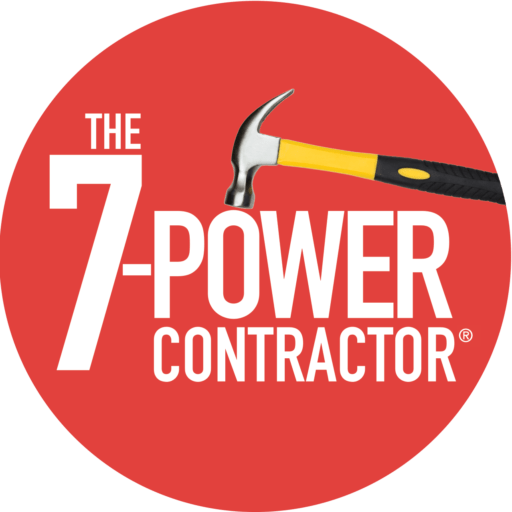One of my very first 1-to-1 consulting clients was with a contractor in his late 50s, and his business was a small plumbing company in the Midwest.
I did my first onsite visit called Planning Power!. This program is designed to get a good 360 degree view of how the company operates currently. This way I can help put a plan in place to address how to take control of the existing day-to-day while also putting in place how to build the right foundation for wherever the owner wants his company to succeed today and grow down the road.
I sat with him in his office and the very first question I asked him was, “So how well does this business run today on a scale of 1 to 10, where 1 is awful and 10 is great?”
He growled, “I’d be generous by saying it’s a 1. And I say that because I hate this business and I can’t wait to sell it!” After some due diligence, I realized his only option at that point would be to shut the doors because no one in their right mind would consider buying his business in its current state. There was a lot of legit reasons he hated it! I could sympathize.
Hey, I too had hated my business once upon a time. That is until I got systems and processes in place. But I’m getting ahead of myself.
The reality is, as contractors, we have very limited choices as to how we’re going to exit our business and even fewer that will result in leaving the business in a good way.
The most common way we exit our business (aka escape) is by enslaving our children to the business. The kids become enslaved either because you charged them too much for buying the business or you’ve turned over a business to them that doesn’t work without you. And therein lies the problem.
You need to be able to get enough money out of it so you can retire comfortably, but not be a problem to your kids. If you walk away from the table without enough money, you might end up having to knock at the door of your kids after the deal closes and ask for more money (if you're selling it within the family). That makes for awful holiday get togethers!
Another option is to sell it to your own employees, which is typically referred to as an employee buyout. But even that has to be structured properly. Why? Because they're employees! There's a lot to develop in these people so that you don't end up having to come out of your retirement with less money if they fail. If you’re going that way, you have to have a process for getting them trained up.
And ultimately if you don’t have a business that anyone wants to buy you just have to close the doors and walk away.
All of this is the awful truth.
However, do you want to know the overarching issue that determines the viability of your business and how attractive it is to a buyer?
Pop quiz: Right now, this minute at your own company; how repeatable is your business? Meaning, if you left for 30 days and never checked in, what would your business look like when you came back?
Before you sweat too much, I know most of you already know you wouldn't probably have a business in this scenario, or if you did, you'd be doing nothing but firefighting and mitigating collateral damage for a month or more after you got back.
So, if I'm coming to buy your company, no matter who I am, private equity or another company that's looking to grow, none of us are going to be able to buy your business as a repeatable business if you are the magic element. Otherwise they just bought themselves a job. And here's what I can share with you. Nobody wants your job, including you.
But if you can create a business where you know exactly what roles it takes to run the business and it’s all laid out on the RIGHT Box Org Chart you’re on the right path. Couple this with having documented systems and processes in place for each one of those boxes. Now you have converted your business from a people-specific business to a system-specific business with great people and great depth. And that will make your business extremely attractive to anyone looking to acquire.
So, you’re probably wondering whatever happened to that plumbing business owner in the Midwest? I’m glad you asked.
I had told him that leaving was definitely one option, but if he chose to fix his business, which is why I was there, it would create some additional options and improve his decision making going forward.
Here's what I can tell you. Within two years of us working together to get all 7-Powers into place (planning, operations, staffing, marketing, sales, sales coaching and financial) his business was running so great he no longer wanted to sell it.
He ended up falling back in love with the business and it’s doing great today all these years later.
Here’s more good news in the way of encouragement to you, and my hope is it will inspire you to follow this path. Others who I worked with have opted to sell their business in a very wide array of ways as people lined up to buy their company. The moral of the story is whether or not you want to sell the business, it’s well worth aiming to build a business somebody else would want to buy because everyone will benefit whatever you decide to do in the end.
